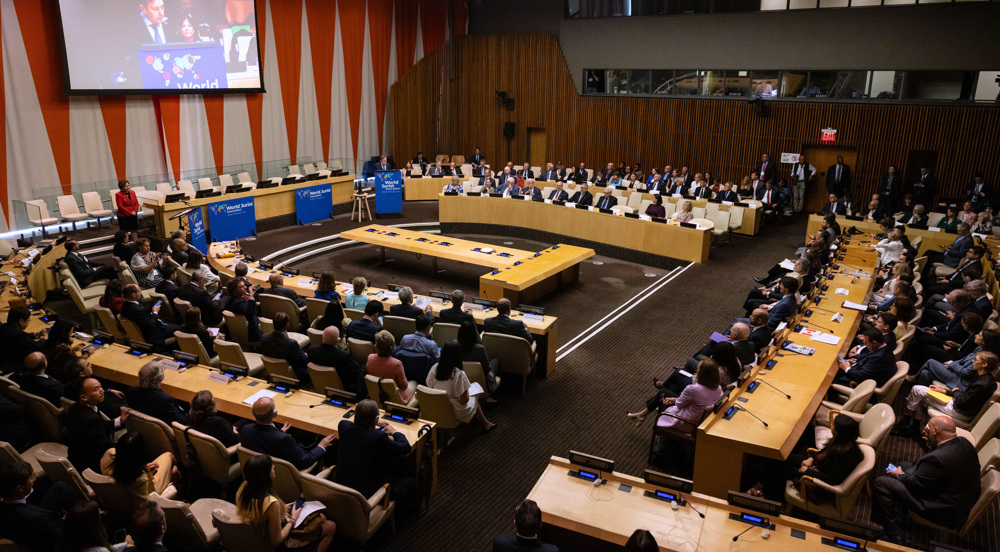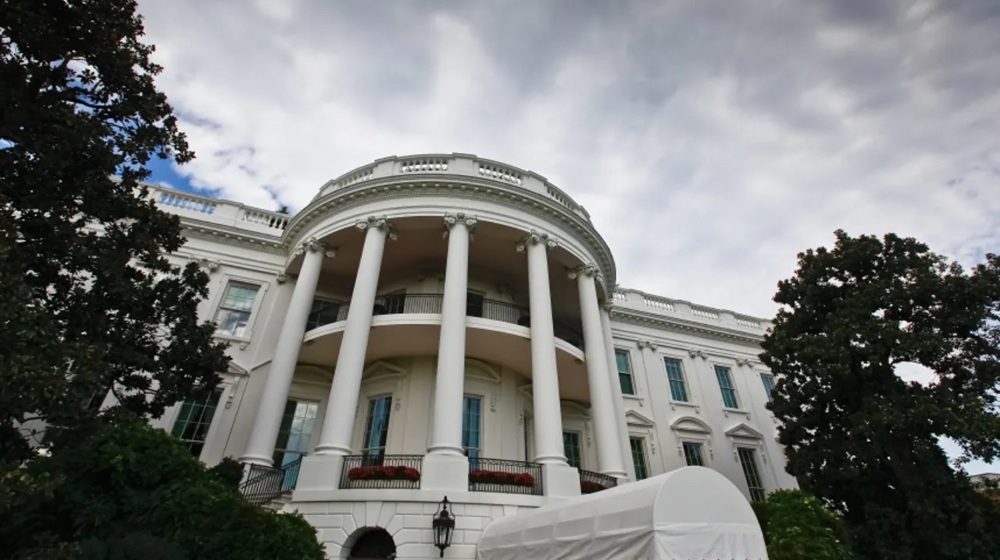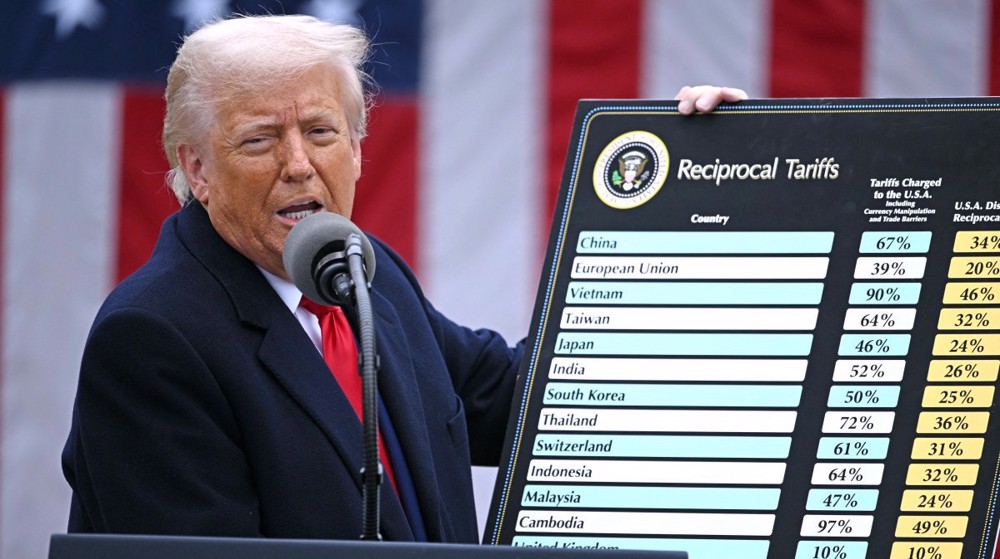US Congress kills bill to end president's power for war on West Asia
A US lawmaker has blasted a congressional vote rejecting a draft legislation that would have terminated what he described as “tyrannical” presidential emergency powers that would allow the American president to wage war on countries across West Asia.
Led by Representative Paul Gosar of Arizona, a handful of Republican members of Congress launched a protest against 41 nominal “national emergency” declarations, many of which are decades old, the US-based Grayzone news website reported on Thursday.
Gosar has described the 148 national emergency powers available to the president as “tyrannical”. He noted there were 41 active national emergencies on the books, with one dating as far back as 1979.
“No president, regardless of party, should be handed a blank check and endless special powers that can be used to circumvent the normal democratic process, exceed their constitutional authority, and violate the balance of power,” Gosar wrote.
This July 18, the House voted down five resolutions to terminate national emergency powers which date back as far as 2003. The countries affected by the five resolutions include Congo, Yemen, Libya, Syria and Iraq.
Each vote saw a coalition of pro-war Democrats and Republicans join together in overwhelming numbers to protect the executive branch’s emergency authorities.
Among the emergency declarations still in effect is one authorizing war on Libya on the basis that Muammar Ghaddafi posed an urgent threat to the US; one enabling economic warfare on Syria on the deceptive grounds that Damascus sponsors international terrorism; and another allowing the president to support Saudi Arabia’s military assault on Yemen, which resulted in the world’s worst humanitarian catastrophe.
Yet another emergency declaration provides the authority for the US government to test biological weapons on American citizens.
“It’s sad that we’re here for these five [emergency resolutions],” Rep. Gosar said on the House floor, warning “there’ll be 36 more coming your way.”
Gosar continued, “National emergencies are supposed to be rare and brief. The passing of the National Emergencies Act in the 1976 congress did not intend for the executive to utilize declarations for decades in order to apply sanctions. That is something Congress can do separately from a national emergency declaration.”
By law, national emergency declarations are supposed to be reviewed by Congress every six months, yet none of the five in question have ever been subject to scrutiny. Boebert noted on the floor that in the 16 years since the national emergency related to Congo was declared, it should have been reviewed 31 times.
Rep. Eli Crane, an Iraq war veteran, sponsored the resolution to terminate the national emergency on Iraq, which was declared just months after the 2003 US invasion. At the time, the U.S. was engaged in an ostensible quest to unearth mythological weapons of mass destruction.
The declaration has been widely criticized as a means of exerting neocolonial control over the Iraqi oil industry, and offering “a guarantee of immunity from prosecution for white-collar and corporate crimes that involve Iraqi oil.” The national emergency power was extended by the Biden administration this May.
Gosar and Rep. Matt Gaetz co-sponsored the resolution seeking to put an end to emergency powers on Syria. This declaration was authorized by a 2004 executive order which introduced sanctions on the grounds that Damascus was “supporting terrorism” and “pursuing weapons of mass destruction and missile programs, and undermining US and international efforts with respect to the stabilization and reconstruction of Iraq.”
The Biden administration extended the sanctions act this May. This time, the administration justified its economic assault on the basis of Syria’s supposed “chemical weapons and supporting terrorist organizations,” which “pose an unusual and extraordinary threat to the national security, foreign policy, and economy of the United States.”
On the House floor, Gaetz characterized the five national emergency declarations addressed in the resolutions as “dormant slush funds spending untold sums of money with no transparency as to how much is going into the ‘Syrian emergency.’”
Gosar’s resolutions focused on national emergency declarations around Yemen and Libya. “Heartlessly, the extended national emergency related to Yemen blocks the donations of food, clothing and medicine intended to relieve the human suffering by the people of Yemen,” he said in a recent press release, noting that an estimated 130 Yemeni children die every day due to famine.
“It is incomprehensible that a stated ‘emergency’ is used by our country to harm the people of another country, including forcing starvation and disease.”
In a separate press release on his Libyan emergency powers resolution, Gosar noted: “Almost hilariously, the extended national emergency related to Libya continues to cite Muammar Qaddafi as the reason for the declaration, even though Qaddafi has been dead for almost 12 years. You can’t make this stuff up.”
“At no time since 2011 has Libya posed a military or economic threat to the United States,” the congressman added. “The people of Libya deserve to live in a manner of their choosing without the prospect of U.S. bombings, attacks or color revolutions thrust upon them by corrupt and misguided American agencies – none of whom are acting with Congressional approval.”
US President Joe Biden had extended for another year the national emergency declared with respect to Syria in May as Washington fumed over Damascus’s return to the Arab League after more than a decade.
Under Biden’s decision, the US national emergency on Syria will remain in effect until May 2024.
In May 2004, then-President George W. Bush signed Executive Order 13338, which classified the Syrian government’s conduct as a national emergency. Successive presidents extended the classification each year, citing false excuses.
VIDEO | Former prince Andrew arrested by British police
VIDEO | Backlash mounts as Pakistan joins US-led Gaza ‘Board of Peace’
Saudi-Greece fiber optic project to pass through Syria instead of occupied territories: Report
Israel steps up bloodshed in Lebanon
US lawmakers move towards vote on limiting Trump’s Iran strike authority
VIDEO | Hebrew media talk ‘Board of Peace,’ ceasefire, anti-Iran rhetoric, tensions surrounding Lebanon
VIDEO | Rising tensions in West Asia
US: Police criticizes ‘excessive and disproportionate' force used by ICE on protesters











 This makes it easy to access the Press TV website
This makes it easy to access the Press TV website